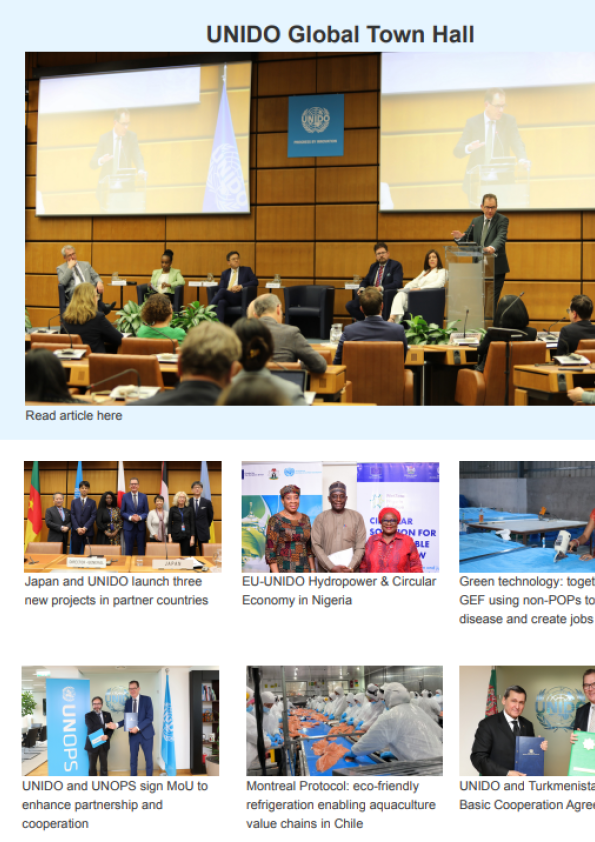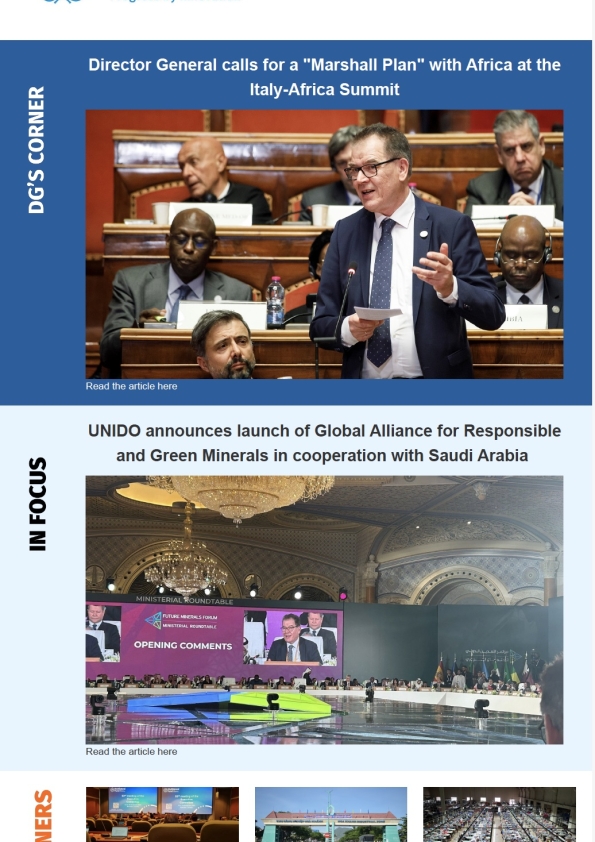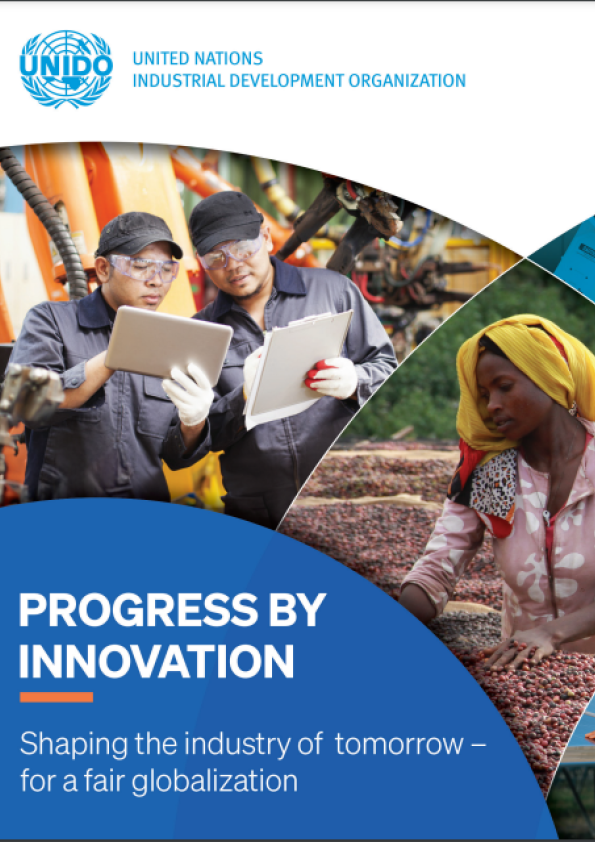
UNIDO Publications


Circular Design of Plastic Products - Policy Brief
2024 | Author(s): GACERE
#GACERE #Circular economy
The policy brief consolidates knowledge and best practices on circular design of plastic products, showcasing examples from GACERE members and partners. It aims to inform the Intergovernmental Negotiating Committee on plastic pollution (INC) about circular design criteria and best practices.

UNIDO and Sustainable Supply Chains
2024 | Author(s): UNIDO
Strengthening Member States’ capacities in developing productive, resilient and sustainable supply chains.

Green hydrogen for Sustainable Industrial Development: A Policy Toolkit for Developing Countries
2024 | Author(s): UNIDO, IRENA, IDOS
#Publications
Green Hydrogen represents a unique opportunity for the clean energy transition. Climate change is an existential threat to a sustainable future, but at the same time, facing up to the climate challenge is an opportunity to promote prosperity and a brighter future for all. Green hydrogen and its derivatives will play a vital role in the just energy transition.

2023 | Author(s): UNIDO
This paper examines plastic pollution, focusing on packaging and single-use plastics. It details the massive growth in plastic production and its largely unrecycled waste stream, highlighting the environmental and economic consequences. The report then explores circular economy practices from design and manufacturing to consumer behavior and waste management to mitigate plastic pollution. Specific circular economy strategies, including extended producer responsibility and resource-efficient cleaner production, are discussed alongside case studies and policy recommendations.

Industrial Development Report 2024
2023 | Author(s): UNIDO
#Flagship #Industrial Development Report
The Industrial Development Report 2024, "Turning Challenges into Sustainable Solutions: The New Era of Industrial Policy" serves as a valuable guide for developing countries, especially least developed countries (LDCs), calling for bold policy initiatives aligned with the Sustainable Development Goals (SDGs). It provides actionable strategies that focus on digitalization, job creation and industrial decarbonization, guiding these regions towards sustainable and inclusive industrial growth.
Industrial Development Report 2024 - Overview
2023 | Author(s): UNIDO
#Flagship #Industrial Development Report
The Industrial Development Report 2024, "Turning Challenges into Sustainable Solutions: The New Era of Industrial Policy" serves as a valuable guide for developing countries, especially least developed countries (LDCs), calling for bold policy initiatives aligned with the Sustainable Development Goals (SDGs). It provides actionable strategies that focus on digitalization, job creation and industrial decarbonization, guiding these regions towards sustainable and inclusive industrial growth.

IID Policy Brief 9: Policy packages for decarbonizing heavy industry
2023 | Author(s): C. Bataille and M. Alfare
#Policy Brief
The Paris Agreement’s primary goal is to keep the rise in average global temperatures to
“well below 2°C and toward 1.5°C” from preindustrial levels. If this goal is to be realized,
the industrial sector must achieve net-zero carbon dioxide (CO2) emissions by 2055.
Supporting Sustainable Supply chains - Through South-South and Triangular Industrial Cooperation
2023 | Author(s): UNIDO
#South-South cooperation
Ending Hunger - Through South-South and Triangular Industrial Cooperation
2023 | Author(s): UNIDO
#South-South cooperation
Limiting Climate Breakdown - Through South-South and Triangular Industrial Cooperation
2023 | Author(s): UNIDO
#South-South cooperation
South-South Investment Forum – Event Summary
2023 | Author(s): UNIDO
#South-South cooperation

Circular Economy and Extended Producer Responsibility
2023 | Author(s): GACERE
#GACERE #Circular economy
The report explores the role of Extended Producer Responsibility in the transition to a circular economy. It synthesizes the concepts exposed in a webinar jointly organized by GACERE and the Organisation for Economic Co-operation and Development (OECD) in June 2022.




